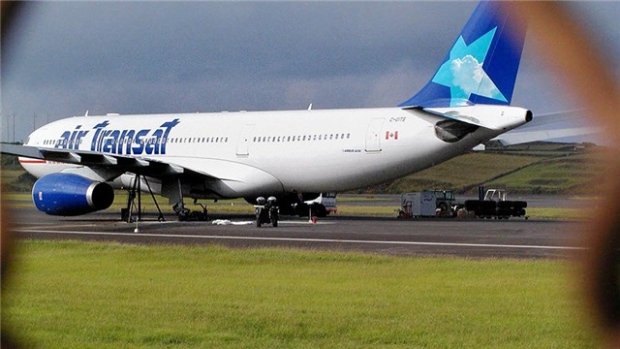Jun 9, 2016
Transat CEO says winter travel season ‘best forgotten’ as company posts loss
The Canadian Press

Transat AT says that it lost $25-million during its fiscal second quarter, which the company’s CEO describes as a “winter best forgotten” because of a combination of challenges that faced the travel company.
The Montreal-based company increased its revenue by 1.5 per cent over the comparable period last year to $888.2-million from $875.2-million, but its costs grew at a faster pace.
Transat’s says its net loss amounted to 68 cents per share and contrasted with a year-earlier profit of $24.7-million or 64 cents per share.
Excluding certain non-operating items, the adjusted loss was $11.9-million or 32 cents per share for the quarter ended April 30 – more than four times bigger than the year-earlier adjusted loss of $2.8-million or seven cents per share.
Transat’s chief executive officer, Jean-Marc Eustache, says the quarter was hurt by the low value of Canada’s dollar, a dip in demand from Western Canada, the possibility of an Air Transat pilot strike and fears prompted by the Zika virus.
The depreciation of Canada’s dollar against the American currency increased operating costs on its “sun destination” travel packages by $25-million even after factoring in lower fuel prices.
Transat said higher average selling prices were only partially able to offset the impact of the currency fluctuation.
“With regard to the Sun destinations market, this was a winter best forgotten,” Eustache said in a statement.
“As far as summer is concerned, the steep 15 per cent increase in capacity on the transatlantic market is affecting prices and load factors ... We expect to report results inferior to those of the record summer seasons we have seen in recent years.”




